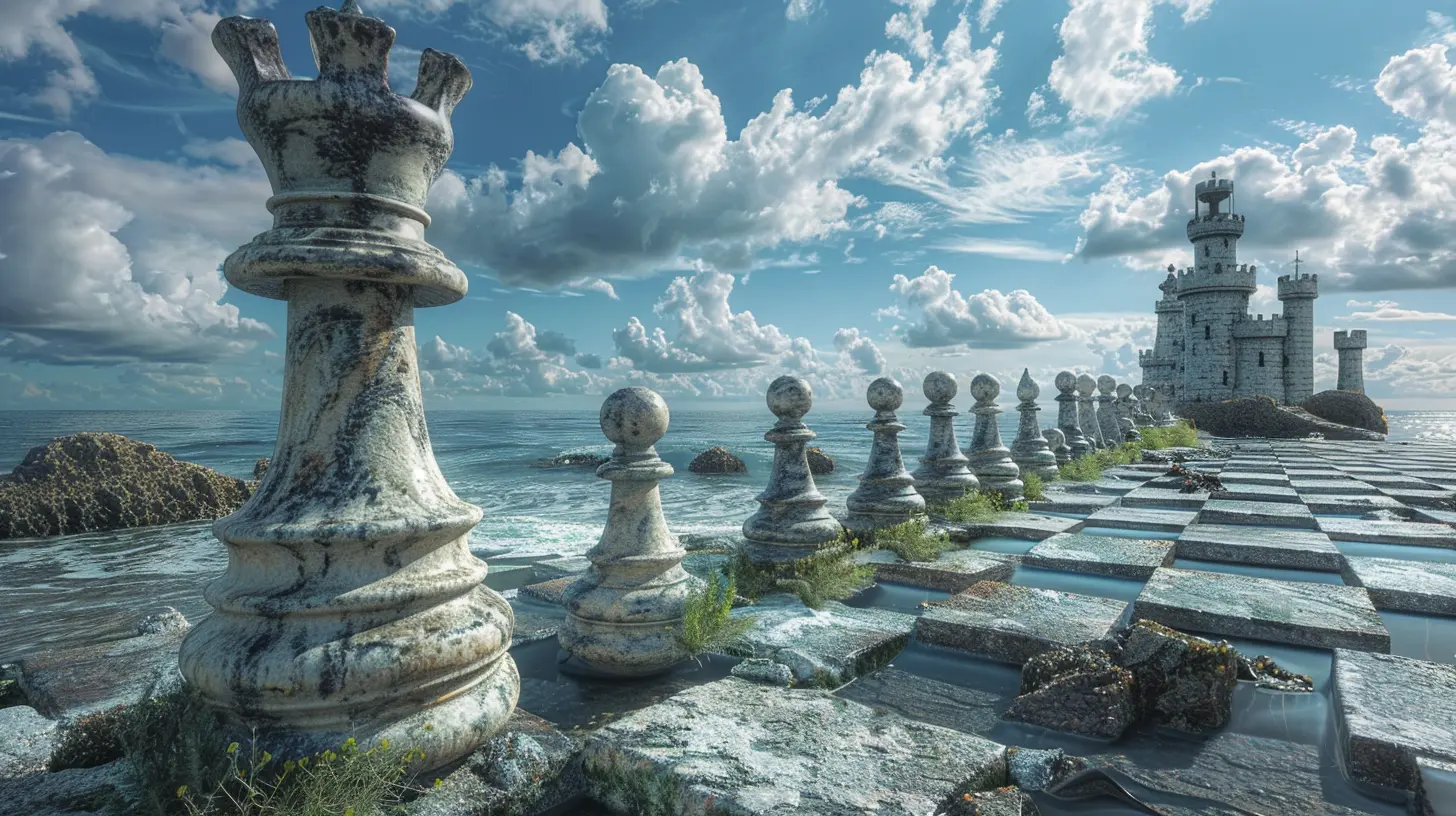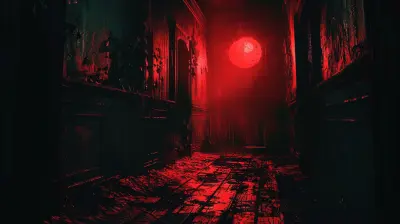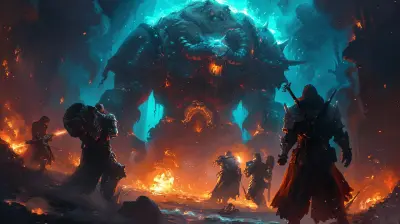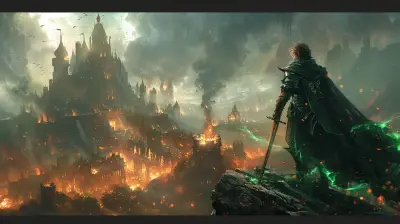Turn the Tide: Games Where Your Choices Truly Matter
19 November 2025
When it comes to gaming, there’s nothing quite like the thrill of making choices that ripple through the storyline. Who doesn’t love that heady cocktail of power and responsibility, knowing your decisions don’t just shape the game—they define it? It’s not just about hitting buttons or completing quests; it’s about immersing yourself in a world where your choices carry weight. From saving lives to destroying empires, these games offer narratives so gripping that they make you pause and think, “Did I just choose wisely… or did I doom us all?”
Let’s dive into some incredible games that put the control squarely in your hands, where your decisions drive the story forward and every choice counts.
Why Decision-Based Games Stand Out
Before we get into the nitty-gritty of specific games, let’s talk about what makes decision-driven games so darn special. Unlike linear games (you know, the ones where you’re basically just along for the ride), these titles push you into the driver’s seat. They give you agency—your actions shape the characters, the world, and ultimately, the ending.And here’s the kicker: the best of these games aren’t always about choosing between good and evil. Oh no. The really juicy ones love to shove you into moral gray areas. What’s right? What’s wrong? It’s all blurry, and that’s what makes them unforgettable. You’re not just playing; you’re living the story.
1. The Witcher 3: Wild Hunt – A World Built on Consequences
If we’re talking about games where choices matter, we’ve got to kick things off with The Witcher 3: Wild Hunt. Geralt of Rivia’s sprawling adventure isn’t just about slaying monsters or collecting coin—it’s about navigating a morally ambiguous world.The choices here aren’t black and white; they’re fifty shades of gray. Do you burn down a village to save one person? Do you help a monster because they have a tragic backstory, or do you stick to your “witcher neutrality” and walk away? These decisions shape the world of The Continent and the relationships Geralt forms along the way.
But what really takes the cake? The multiple endings. There are over 36 potential world states influenced by your actions. So yeah, you might want to think twice about upsetting Ciri or siding with Nilfgaard.
2. Life is Strange – Butterfly Effect, Literally
Choices don’t just matter in Life is Strange—they’re everything. As Max Caulfield, a teenage photographer with time-rewinding superpowers, you’re constantly faced with decisions that alter the course of the game.Here’s the catch: every choice feels like it’s teetering on the edge of a cliff. Made a quick decision to rat out a bully? That might come back to bite you in Episode 3. Decided to save someone’s life? Congrats, but now everything else might go horribly wrong. It’s the ultimate “what if” simulator.
The beauty of this game lies in its exploration of consequence. It’s like throwing a pebble into a pond—the ripples stretch far further than you expect. And let’s not forget the heart-wrenching finale, where you have to make a choice so monumental it’ll leave you staring at your screen, frozen.
3. Detroit: Become Human – Your Decisions, Your Story
Imagine being able to shape an entire revolution with your choices. That’s the premise of Detroit: Become Human, a game that hands you the reins to three androids in a world where artificial intelligence is gaining sentience.Every decision you make—whether it’s a quick-time event or a dialogue choice—branches out into new possibilities. Save a character? You’ll change their entire storyline. Fail a mission? The game keeps going, weaving your mistake into the narrative.
What makes this game stand out is its branching paths. There are hundreds of potential outcomes, from peaceful protests to full-blown warfare. Oh, and no pressure, but if you mess up, you might accidentally get a main character killed. Yikes.
4. Mass Effect Series – Galactic Choices with High Stakes
The Mass Effect series elevated choice-driven gaming to a whole new level. Across three games, you build your own Commander Shepard, forge alliances, and decide the fate of the galaxy.The brilliance of Mass Effect lies in its continuity. The choices you make in the first game carry over to the next. Did you save the Rachni queen? Sacrifice Kaidan or Ashley? Let the Citadel Council survive or perish? These decisions create a domino effect, influencing everything from individual relationships to the game’s final moments.
And let’s not even get started on the loyalty missions. Getting your crew members’ trust isn’t just about completing tasks—it’s about understanding their backstories, making tough calls, and ensuring they survive the Suicide Mission. No pressure, right?
5. Until Dawn – Every Choice Can Kill… or Save
Want a game where every decision feels like life or death? Enter Until Dawn. This horror game plays out like a slasher flick, with eight characters fighting to survive until morning. The twist? How many live (or die) is entirely up to you.The game tracks every choice you make through its “butterfly effect” system. Something as small as choosing to pick up a baseball bat might save someone’s life three chapters later. And believe me, the game doesn’t pull punches. Make the wrong choice, and you’ll watch your favorite characters meet gruesome ends.
What’s genius about Until Dawn is that it plays with your expectations. You think you’re making the right choice, but the game loves to flip the script. Every decision feels like walking through a minefield—and that’s the spooky charm of it.
6. Heavy Rain – Whose Story Will You Shape?
Quantic Dream knows how to do choice-driven games, and Heavy Rain is a testament to that. This gripping thriller follows four protagonists as they try to unravel the mystery of the Origami Killer.What sets Heavy Rain apart is its sense of urgency. There’s no “game over.” Fail a mission? That character might die permanently, altering the course of the story. This keeps you on your toes, knowing every action has consequences.
The game’s multiple endings ensure that no two playthroughs are the same. Did your decisions lead to justice being served, or does the killer walk free? The weight of every choice hangs heavy, making this one of the most intense gaming experiences out there.
7. The Stanley Parable – A Choice About Choices
Okay, hear me out—The Stanley Parable is technically a game about choices, even if it spends most of its time poking fun at the concept. You’re Stanley, an office worker navigating a bizarre, empty workplace, guided by a snarky narrator who has opinions about every choice you make.What’s genius about this game is how it deconstructs the idea of choice itself. Do you follow the narrator’s instructions, or do you go rogue? Every decision you make spirals into absurd (and often hilarious) consequences.
While it’s not your typical decision-driven game, The Stanley Parable forces you to think critically about the illusion of agency in video games. Plus, it’s just plain fun.
Why We Love These Games
So, why do we keep coming back to these nail-biting, choice-laden adventures? Because they make us feel something. When your choices carry consequences, you’re no longer just a player—you’re a storyteller, shaping the narrative as you go.These games tap into something incredibly human: our desire for agency and our fascination with “what if” scenarios. Sure, sometimes we mess up big time (looking at you, Until Dawn), but that’s part of the magic. It’s a rollercoaster of emotions, and we can’t get enough.
Honorable Mentions
- Telltale’s The Walking Dead – Do you save your new friend, or protect the supplies for your group?- Firewatch – A game that’s intimate, contemplative, and full of decisions about trust.
- Dishonored – A stealth-action game where morality shapes both the world and its ending.
- Dragon Age: Inquisition – Build alliances, lead armies, and decide the fate of Thedas.
Final Thoughts
Choice-driven games aren’t just about entertainment—they’re about experiencing stories in a deeply personal way. They challenge us to think critically, weigh consequences, and step into the shoes of characters making impossible decisions. Whether you’re crafting alliances in space, surviving until dawn, or navigating the butterfly effects of teenage drama, these games ensure one thing: your choices matter.So the next time you fire up a game and face that pivotal decision, remember—you’re not just playing. You’re shaping a world, one choice at a time.
all images in this post were generated using AI tools
Category:
Game ReviewsAuthor:

Greyson McVeigh
Discussion
rate this article
1 comments
Flint Bass
Great insights! Choice-driven games enhance player engagement and deepen emotional connections. Thank you for sharing!
December 11, 2025 at 4:28 PM

Greyson McVeigh
Thank you for your kind words! I'm glad you found the insights valuable. Choice-driven games truly do create richer experiences.


